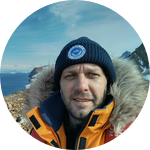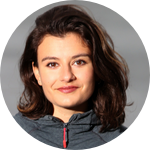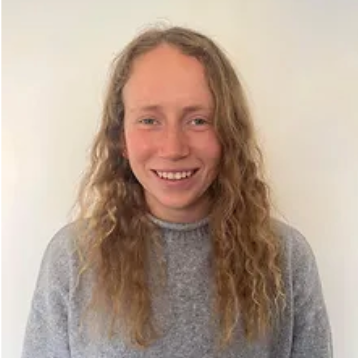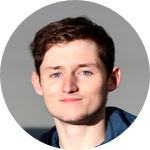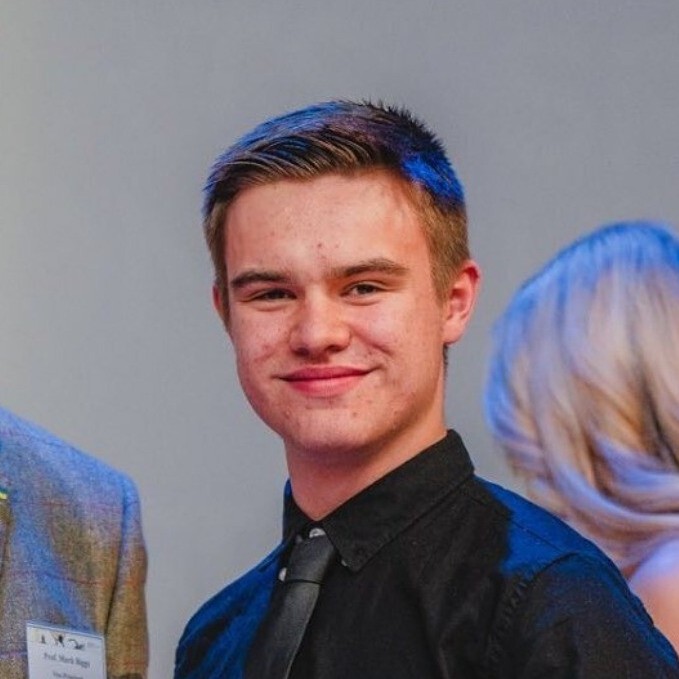About This Project
Expanding the horizon of data collection at sea, our project aims to use innovative, small autonomous micro-vessels to detect wave profiles, facilitating low-cost, continuous wave monitoring. We will collect and compare our data with a surface following buoy to evaluate the viability of using autonomous wind-powered vessels, which exhibit non-wave induced motion, for sea wave monitoring.
Ask the Scientists
Join The DiscussionWhat is the context of this research?
Wave profile measurements are crucial for enhancing our understanding of ocean dynamics, improving weather forecasting, studying climate patterns, and oceanographic research. This data benefits a range of applications, from marine safety and offshore operations to climate analysis and ecological research. Traditional methods like ship radars and moored buoys are costly and unreliable, while drifting buoys pose environmental concerns and lack persistence due to their rapid drift.
Our project offers a persistent, cost-effective, and environmentally friendly alternative: a small autonomous micro-vessel. With its compact size and modular design, it’s an ideal tool for scientists to conduct experiments, eliminating the need for shallow waters or expensive charters.
What is the significance of this project?
With a new approach, we aim to break down the financial barriers that often hinder wave monitoring. Our small autonomous micro-vessel not only reduce the costs associated, but also promotes a more sustainable method of data collection.
Given that our vessels exhibit non-wave induced motion from their interaction with the wind, this is a non-trivial problem. As a result, we will share our data, outcomes, and validation process with the scientific community, providing insights into the feasibility of using autonomous micro-vessels for wave monitoring. Future plans include leasing fleets of these vessels to scientists, thereby broadening access to this technology. We hope in the future that this opens up more groups to affordably collect wave data.
What are the goals of the project?
The objective of this project is to verify the effectiveness of our autonomous micro-vessel in accurately profiling waves. This entails incorporating a highly precise accelerometer to gather data, which will need to be iteratively processed and compared to data collected by a surface-following buoy. This comparison will demonstrate the effectiveness and reliability of collecting wave data from an autonomous vessel, whose motion is interfered by non-wave interactions.
Additionally, we will attach high-quality cameras to the vessel, which will give us valuable visual information on wind-over-tide conditions, wave alignment, and the general sea state (spray etc), contributing to a comprehensive wave profile dataset.
Budget
The budget includes funds for purchasing necessary sensors (a highly accurate 9 degree of freedom accelerometer) and cameras, including materials to integrate these into the vessels and to power them. We have also included costs for a buoy that we can use to validate our data against, and costs that will be involved in taking our vessels out to sea to collect this data. This budget will also provide financial support to an intern working on this project.
Endorsed by
 Project Timeline
Project Timeline
The project starts with the integration of the accelerometer and cameras onto our autonomous micro-vessels. Then, focus shifts towards creating the software to process the collected data. The vessels will be deployed at sea to gather data alongside a surface-following validation buoy so that we can compare our data to the status quo. Final processing and analysis of the data will result in a comprehensive wave profile dataset that can be shared with researchers.
Jun 01, 2023
Project Launched
Jun 07, 2023
Project Launched
Jun 08, 2023
Purchase of accelerometers, cameras and validation buoy.
Jun 30, 2023
Sensors and cameras fully integrated into the boat. Initial code for processing data complete.
Jul 21, 2023
First iteration of code complete, with initial data collected from simulating waves.
Meet the Team
Team Bio
Oshen was founded in 2022 by Anahita and Ciaran. Within a year, the team has successfully accomplished the design, construction, and testing of an initial prototype vessel. The team met during their studies at Imperial College London and possess a range of skills which will be essential for the success of this project, ranging from micro-vessel dynamics to sensor design, integration and data processing.
To learn more about Oshen, please visit: https://www.oshensail.com/
Anahita Laverack
As a keen sailor and with a MEng in Aeronautical Engineering, Anahita is very experienced with testing the vessel at sea and understanding the interactions between waves and small vessels. Her aeronautical background informs her knowledge of the micro-vessel dynamics, which is extremely useful during the design of the vessels.
Ffion Llewellyn
Responsible for the integration of the existing sensors on our micro-vessel, including metocean and acoustic sensors, Ffion has the experience required to integrate the required sensors for this project onto small autonomous surface vessels. She has a MEng in Aeronautical engineering, providing further skills towards the dynamics of the vessels.
Ciaran Dowds
Ciaran holds an MEng in Electronic and Electrical Engineering from Imperial College London, with a specialized focus in robotics, embedded systems, and control theory. Past work includes the design and fabrication of a low cost robotic manipulator and the creation of a novel data processing technique for tactile object feature recognition.
He is now working on developing a low cost, autonomous micro-vessel to collect ocean data. He has written embedded software to integrate the vessel sensors and actuators and is now refining the energy efficient navigation controller.
Fraser Holman
Fraser is currently studying a MEng in Robotics Engineering at Heriot-Watt University and is further developing and learning new skills at Oshen as an Intern. He is currently researching and developing wave spectral analysis techniques to be used on our Autonomous Micro-Vessels.
Project Backers
- 4Backers
- 71%Funded
- $7,045Total Donations
- $1,761.25Average Donation
